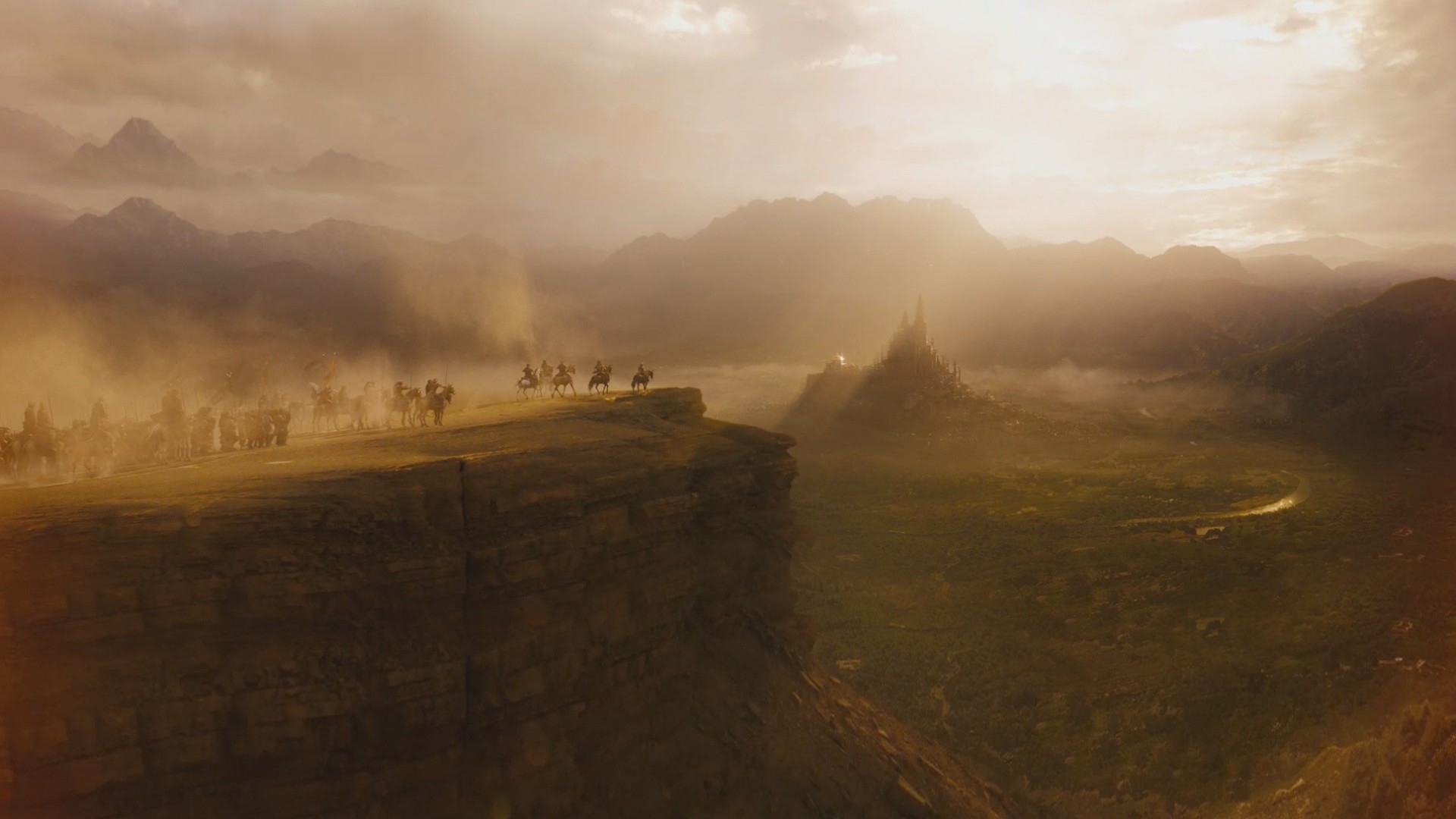Pilgrim States
The Pilgrim States, also known as the Holy States of the Mashiq or the Aulo'adry are a group of four Auloan polities that rule over much of the Mashiq. They consist of the Kingdom of Jeharoa, the Principality of Alameen, the Province of Tyria, and the County of Boshra. The States were established after the First Pilgrim War in 311 SE as part of the Sunstair Concordant, an agreement between the remaining leaders of the Miraculous Three and the commanders of the Pilgrim army.
In 361 SE, a renewed effort by the emirs of the Qartagonian Emirates to retake the Mashiq began with the calling of a declaration of war against the Pilgrim States and their allies, the Imperium of Iskendra. The Grand Army of the Dragon, under the command of Sultana Safaar Qosaariya eld-Sadek, has launched a full-scale invasion of the Pilgrim States. Today, the Pilgrim States are in crisis, with the city of Alameen having already fallen to the Qartagonians on the 3rd of Green Birth, 362 SE. Raiders have been spotted throughout all three of the remaining States on both wyvern and horseback. As of Sun's Crest, the Grand Army of the Dragon has been split into two companies; one entrenched in a siege of the vital Ebelin Castle and another camped somewhere Leode Gap. With this latter group located just north of the Jeharoa, all fear an attack on the Holy City and its denizens.
Religion & Internal Affairs
Though not theocracies, the Pilgrim States are explicitly pro-Heavenly Council and particularly emphasize devotion to the gods Uriah, Porcia, Telerashi, Balan, Ezrahil, and Elenea. Other religions, such as Kōsism, are lightly tolerated, with crime and discrimination against them being rampant. Non-Auloans, particularly those of monstrous descent, are especially at risk, with many having lost their lands and forced into serfdom by the ruling class. Having been born out of war with the Qartagonian Emirates, the Pilgrim States have a deep enmity towards the Qartagonians. Dragonborn POWs are used as forced labor and those with draconic or demonic ancestry have been the subjects of witch trials and mob violence.Foreign Relations
The Pilgrim States do have some allies in the region. The Imperium of Iskendra had initially invited the Miraculous Three to assist in their ongoing conflict with the Emirates of Alameen and Jeharoa prior to the First Pilgrim War and supplied the Pilgrim army with resources and intelligence. Following the War, the liberated Bashari Timberlands were given to the Imperium as a gift and are used as a buffer zone between the Qartagonian-controlled Marrow Desert and the Pilgrim States themselves. The Shanindar Empire, though not formal allies, have tacitly given their approval to the Pilgrim rulers as a means of weakening their Qartagonian neighbors. However, tensions between the two have grown over the past few decades as instances of anti-Zwaist violence have sprung up in the increasingly xenophobic polities.Structure
Though structured as a feudal kingdom, each polity has a high degree of independence, though matters of trade and security are often discussed as a group. They are led by the Monarch of Jeharoa, though the structuring of the high nobility has been somewhat in flux over the past couple of years. Their governance is largely based on a strict form of feudalism largely deriving from Falerian laws and customs. Much of the territory within by the Pilgrim States has been forcibly taken from the local Mashiqi population and reallocated to Pilgrim crusaders and investors from Auloa. Much of the elite in the Pilgrim States descend from the leaders of the First Pilgrim War, though many adventurers still flock to the region in hopes of gaining fortune and glory through the conquest of neighboring lands or the plundering of native antiquity sites. In particular, the looting of Palladian Empire and other older ruins has fueled the economies of the Pilgrim States and enlarged their reputation as a land of opportunity for those willing to seize it.
Security
Like most feudal states, the Pilgrim States do not have a standing army. Instead, it relies on feudal levies, which are drawn from local Mashiqi populations. However, because of the extreme degree of distrust between the ruling Pilgrim nobility and the Mashiqi, the Pilgrim States have two unique forms of security: First, the Pilgrim States rely heavily on religious and chivalric organizations. These include religious orders of various Heavenly Council clergy, such as the Justicars of Balan, or paramilitary orders like the Brotherhood of Bronze. While the religious orders are technically forbidden from swearing fealty to a mortal institution, they are permitted to defend the faithful and holy sites. Chivalric orders such as the Brotherhood of Bronze do swear fealty to the nobility of the realm so long as those nobles uphold the virtues to which the order has devoted themselves to. Second, the Pilgrim States take advantage of the recent rise in independent "adventuring parties" by issuing letters of marque to said companies of adventures. In essence, they act as wandering mercenaries with a great deal of license to meet out justice and face enemies of the state. They are often sent against monsters, supernatural threats, and monstrous inhabitants of the realm including other mortals. Many adventurers have come to the Pilgrim States for this reason, lured by tales of hidden tombs of gold and vicious beasts worthy of slaying. This has also given the nobility plausible deniability when hiring these adventurers as many of their quests end up negatively impacting the local monstrous or Mashiqi population.
Founding Date
310 SE
Type
Political, Federation
Capital
Alternative Names
Holy States of the Mashiq; the Aulo'adry
Predecessor Organization
Demonym
Pilgrim
Leader
Government System
Monarchy, Absolute
Power Structure
Feudal state
Economic System
Traditional
Official Languages
Neighboring Nations
Related Ethnicities



Comments